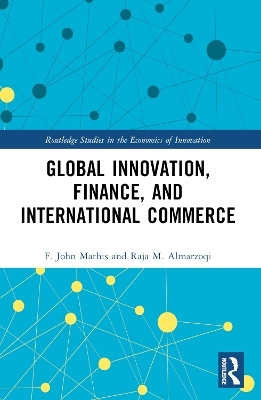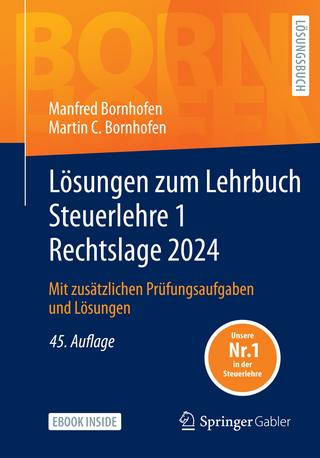
Global Innovation, Finance, and International Commerce
Routledge (Verlag)
978-1-032-39883-9 (ISBN)
This book analyses the historical context and progression of "significant innovations" beginning with the industrial revolution, starting around 1750 to the present. It explores the interrelationship, causes, and evolutionary process of contemporary "disruptive" inventions and the role played by global finance and international commerce to support these.
First, the authors examine the environment and circumstances surrounding the inventors and explore their backgrounds to determine, why at a specific time, they identified a need that became the seed for invention and, what was their method of successfully commercializing their innovation. Secondly, they focus on the financing of the inventor, the innovation, and the commercialization of the invention(s). They analyze the changes in finance during the shift from a labor-based production process to a more capital-intensive production process, and what new financial products or financial markets were created to facilitate this transition. Third, they explore the impact of global commerce on the inventor country’s innovation environment and international competition impacting the innovation’s production, distribution, and sales, as well as, investigating any financial impact from the demand side and whether that impact was domestic or global in character. Furthermore, they consider if and how global finance and international commerce including the migration of people, together play a role in helping the disruptive invention satisfy a need in society, whether from a production or consumption perspective. Finally, they search for common elements that repeatedly inspired inventors and their disruptive innovations over time.
This book will appeal to global government officials, business leadership, early career professionals, and students across a number of disciplines including finance, economics, business, engineering, and technology.
F. John Mathis is an emeritus professor of global economics, banking and finance and the the former director of the Global Financial Services Center at Thunderbird School of Global Management, Arizona State University, USA. Raja M. Almarzoqi is a Chief Economic Advisor at Ministry of Economy and Planning and a faculty member at the Institute of Diplomatic Studies, a previous Adjunct Professor at Thunderbird School of Global Management, Arizona State University, USA and King Saud University, Saudi Arabia. Former Advisor at International Monetary Fund, USA.
Part 1: Innovation of First Industrial Revolution Sets Foundation – Industrial Capitalism 1: Survival in A Shrinking World 2: First Industrial Revolution and Its Global Impact 3: Transitioning to The Second Industrial Revolution 4: Second and Third Industrial Revolutions 5: Shifting from Peace to the Impact of War Part 2: Global Commerce Following World War II – Globalization Capitalism 6: Importance of Global Commerce for Innovation 7: Global Finance and Innovations Part 3: Global Innovation Expands World Interdependence - Entrepreneurial Capitalism 8: Value of Standards, Measurement, and Manufacturing 9: Innovation and the Future of Earth
| Erscheinungsdatum | 08.11.2022 |
|---|---|
| Reihe/Serie | Routledge Studies in the Economics of Innovation |
| Zusatzinfo | 32 Tables, black and white; 3 Line drawings, black and white; 3 Illustrations, black and white |
| Verlagsort | London |
| Sprache | englisch |
| Maße | 156 x 234 mm |
| Gewicht | 489 g |
| Themenwelt | Wirtschaft ► Betriebswirtschaft / Management ► Finanzierung |
| Wirtschaft ► Volkswirtschaftslehre ► Mikroökonomie | |
| ISBN-10 | 1-032-39883-3 / 1032398833 |
| ISBN-13 | 978-1-032-39883-9 / 9781032398839 |
| Zustand | Neuware |
| Haben Sie eine Frage zum Produkt? |
aus dem Bereich


